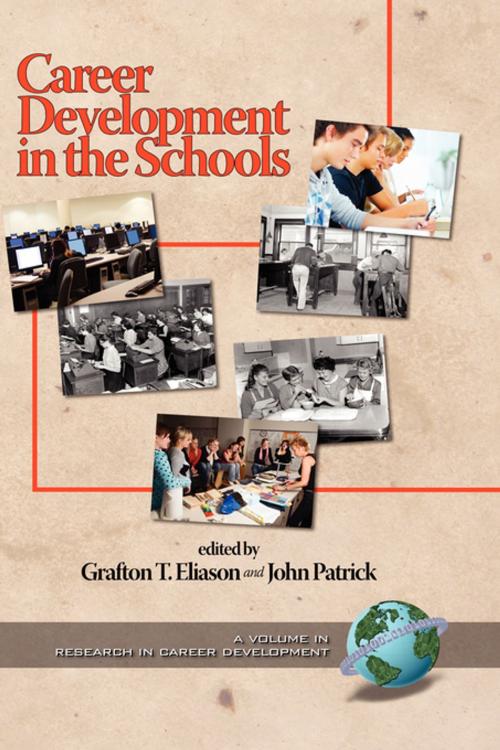Career Development in the Schools
Nonfiction, Reference & Language, Education & Teaching, Educational Theory, Aims & Objectives, Higher Education| Author: | ISBN: | 9781607528302 | |
| Publisher: | Information Age Publishing | Publication: | October 1, 2008 |
| Imprint: | Information Age Publishing | Language: | English |
| Author: | |
| ISBN: | 9781607528302 |
| Publisher: | Information Age Publishing |
| Publication: | October 1, 2008 |
| Imprint: | Information Age Publishing |
| Language: | English |
Career Development in the Schools describes a dynamic process that continues to evolve in its rationale and practice. In many schools and in a variety of scholarly writings, the status of career development is controversial. Some observers assert that career development should be seen as a byproduct of all of the knowledge and activities that are incorporated in the educational experience. In this view, career development tends to be seen as a random process that happens in a natural, almost magical way, without specific direction or structured form. However, most career theorists would argue that the career development of students should be a major mission of the school—a process too important to be only a byproduct of scattered learning and activities that are inherently uneven from student to student. The prevailing contemporary perspective contends that career development in the schools should be planned, have its own content derived from research and theory, be systematically executed, and use methods that are relevant to the developmental levels of students throughout elementary, middle, and senior high schools. To further such ends, several national models of content and practice have been formulated by the American School Counselor Association, the National Career Development Revised Guidance Project, and by other organizations to identify the components, competencies, and outcomes that students of different ages and aspirations need to acquire as they grow in maturity. Several of these models are discussed at length in the various chapters of this book.
Career Development in the Schools describes a dynamic process that continues to evolve in its rationale and practice. In many schools and in a variety of scholarly writings, the status of career development is controversial. Some observers assert that career development should be seen as a byproduct of all of the knowledge and activities that are incorporated in the educational experience. In this view, career development tends to be seen as a random process that happens in a natural, almost magical way, without specific direction or structured form. However, most career theorists would argue that the career development of students should be a major mission of the school—a process too important to be only a byproduct of scattered learning and activities that are inherently uneven from student to student. The prevailing contemporary perspective contends that career development in the schools should be planned, have its own content derived from research and theory, be systematically executed, and use methods that are relevant to the developmental levels of students throughout elementary, middle, and senior high schools. To further such ends, several national models of content and practice have been formulated by the American School Counselor Association, the National Career Development Revised Guidance Project, and by other organizations to identify the components, competencies, and outcomes that students of different ages and aspirations need to acquire as they grow in maturity. Several of these models are discussed at length in the various chapters of this book.















